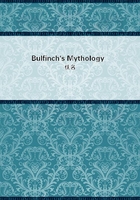
第71章
Oh, comfortable streams! With eager lips And trembling hands the languid thirsty quaff New life in you; fresh vigor fills their veins.
No warmer cups the rural ages knew, None warmer sought the sires of humankind;Happy in temperate peace their equal days Felt not the alternate fits of feverish mirth And sick dejection; still serene and pleased, Blessed with divine immunity from ills, Long centuries they lived; their only fate Was ripe old age, and rather sleep than death."THE CAMENAE
By this name the Latins designated the Muses, but included under it also some other deities, principally nymphs of fountains.
Egeria was one of them, whose fountain and grotto are still shown. It was said that Numa, the second king of Rome, was favored by this nymph with secret interviews, in which she taught him those lessons of wisdom and of law which he embodied in the institutions of his rising nation. After the death of Numa the nymph pined away and was changed into a fountain.
Byron, in Childe Harold, Canto IV., thus alludes to Egeria and her grotto:
"Here didst thou dwell in this enchanted cover, Egeria! All thy heavenly bosom beating For the far footsteps of thy mortal lover;The purple midnight veiled that mystic meeting With her most starry canopy."Tennyson, also, in his Palace of Art, gives us a glimpse of the royal lover expecting the interview.
"Holding one hand against his ear, To list a footfall ere he saw The wood-nymph, stayed the Tuscan king to hear Of wisdom and of law."THE WINDS
When so many less active agencies were personified, it is not to be supposed that the winds failed to be so. They were Boreas or Aquilo, the north wind, Zephyrus or Favonius, the west, Notus or Auster, the south, and Eurus, the east. The first two have been chiefly celebrated by the poets, the former as the type of rudeness, the latter of gentleness. Boreas loved the nymph Orithyia, and tried to play the lover's part, but met with poor success. It was hard for him to breathe gently, and sighing was out of the question. Weary at last of fruitless endeavors, he acted out his true character, seized the maiden and carried her off. Their children were Zetes and Calais, winged warriors, who accompanied the Argonautic expedition, and did good service in an encounter with those monstrous birds the Harpies.
Zephyrus was the lover of Flora. Milton alludes to them in Paradise Lost, where he describes Adam waking and contemplating Eve still asleep:
"He on his side Leaning half raised, with looks of cordial love Hung over her enamored, and beheld Beauty which, whether waking or asleep, Shot forth peculiar graces; then with voice, Mild as when Zephyrus on Flora breathes, Her hand soft touching, whispered thus, 'Awake!
My fairest, my espoused, my latest found, Heaven's last, best gift, my ever-new delight.'"Dr. Young, the poet of the Night Thoughts, addressing the idle and luxurious, says:
"Ye delicate! Who nothing can support (Yourselves most insupportable), for whom The winter rose must blow, . .
. . . . And silky soft Favonious breathe still softer or be chid!"Fortuna is the Latin name for Tyche, the goddess of Fortune. The worship of Fortuna held a position of much higher importance at Rome than did the worship of Tyche among the Greeks. She was regarded at Rome as the goddess of good fortune only, and was usually represented holding the cornucopia.
Victoria, the Latin form for the goddess Nike, was highly honored among the conquest-loving Romans, and many temples were dedicated to her at Rome. There was a celebrated temple at Athens to the Greek goddess Nike Apteros, or Wingless Victory, of which remains still exist.